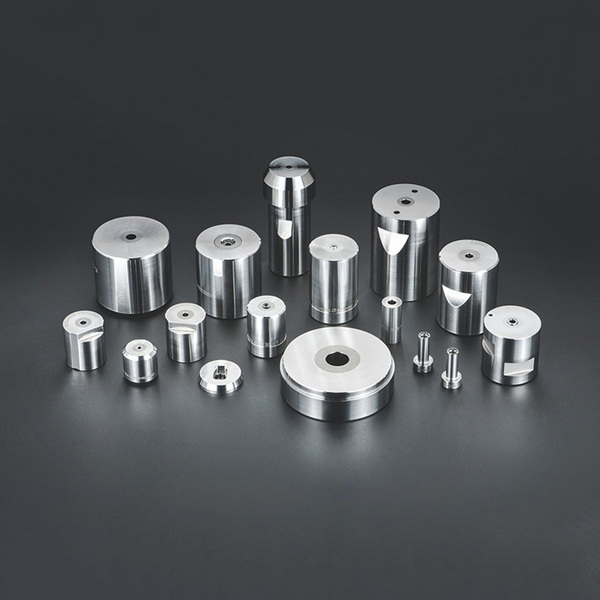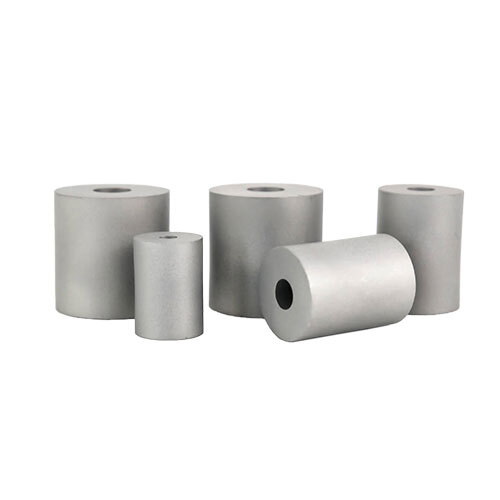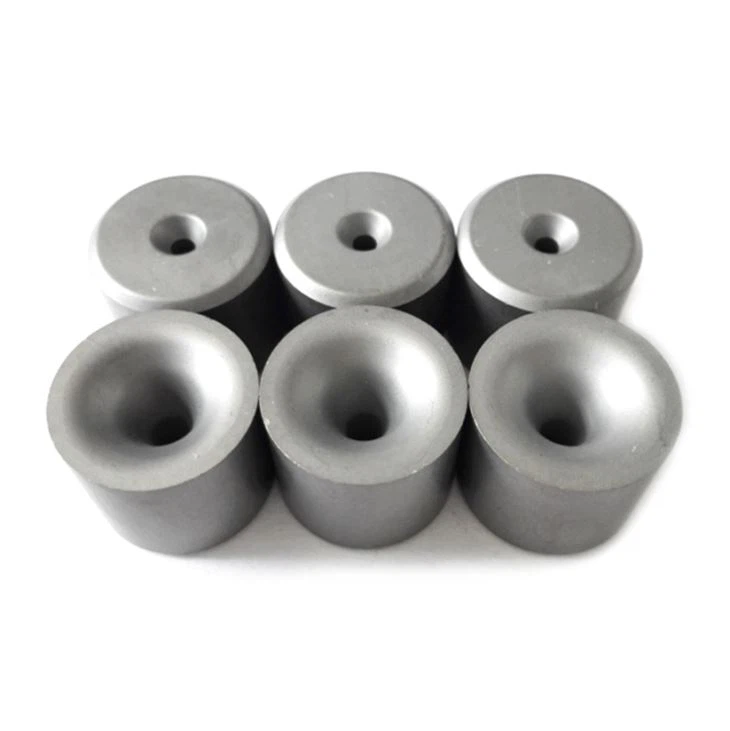Content Menu
● Introduction
● What Are Carbide Forging Dies?
● UK Expertise in Carbide Forging Dies
● Detailed Manufacturing Process of Carbide Forging Dies
>> Powder Mixing and Preparation
>> Pressing and Pre-Forming
>> Sintering
>> Finishing Operations
>> Comprehensive Inspection
● Environmental Responsibility and Sustainability
● Core Sectors Served by Carbide Forging Dies
>> Automotive Manufacturing
>> Aerospace and Defense
>> Energy and Heavy Machinery
>> Medical and Precision Equipment
>> General Engineering and White Goods
● Latest Advances and Trends in Carbide Die Manufacturing
● Choosing the Right UK Carbide Forging Dies Manufacturer
● Conclusion
● Frequently Asked Questions (FAQ)
>> 1. What makes carbide forging dies superior to conventional tools?
>> 2. How do UK carbide forging dies manufacturers ensure quality control?
>> 3. Which industries most benefit from carbide forging dies?
>> 4. Can UK suppliers produce customized carbide forging dies for specialized projects?
>> 5. What are current trends in carbide die manufacturing technology?
Introduction
The UK's reputation as a manufacturing powerhouse is built on generations of metallurgical expertise, state-of-the-art research and development, and world-class engineering talent. In this landscape, carbide forging dies hold unique importance. These vital tools drive the mass production of complex, high-precision metal components that are found in everything from automotive assemblies and airplanes to medical equipment and electronics. As manufacturing standards evolve, demand for high-performance and reliable carbide forging dies manufacturers and suppliers also grows. This article provides an in-depth look at what sets the UK's top carbide forging dies manufacturers apart, how their products impact modern industry, and what buyers around the world should consider when choosing a supplier.

What Are Carbide Forging Dies?
Carbide forging dies are engineered tools made primarily from tungsten carbide composites, with cobalt or nickel acting as binders. Carbide offers exceptional hardness, remarkable thermal stability, and outstanding wear resistance, making it the material of choice for high-volume metal forging and forming operations. The unique microstructure prevents rapid tool wear and deformation even under extreme mechanical stresses, enabling manufacturers to maintain part quality while reducing changeover times and tooling costs.
Carbide forging dies are used in both hot and cold applications, including:
- Cold heading for bolts, nuts, screws, and fasteners
- Wire drawing, extrusion, and deep drawing operations
- Forming precision components for automotive, aerospace, and energy sectors
- Shaping tiny electronic, medical, and specialty components requiring ultra-fine tolerances
A diverse range of dies is available, tailored to accommodate various product geometries such as hexagons, special bores, point forms, Torx® patterns, and more.
UK Expertise in Carbide Forging Dies
British manufacturers have long been synonymous with quality and innovation in tooling and die making. UK carbide forging dies manufacturers combine decades of hands-on experience with cutting-edge automation and design technologies, ensuring consistency and reliability across every order.
Key strengths include:
- Extensive in-house capabilities for turning, milling, grinding, and EDM machining
- Rapid prototyping, short production lead times, and continuous R&D investment
- Customization services to adapt tools to customer blueprints and special requirements
- Rigorous quality control, including non-destructive testing and dimensional verification
UK suppliers often maintain considerable inventory reserves of raw tungsten carbide, enabling them to respond quickly to urgent or large-volume requests. High levels of after-sales support and technical consultancy also distinguish many leading providers.
Detailed Manufacturing Process of Carbide Forging Dies
The manufacturing of carbide forging dies involves a series of advanced steps, each optimized for maximum precision and durability. The process begins with the selection and mixing of high-purity tungsten carbide powders—sometimes blended with fine grains of titanium carbide, tantalum carbide, or other additives depending on the application.
Powder Mixing and Preparation
Carbide powders are thoroughly blended with a metallic binder (usually cobalt or nickel) and, sometimes, lubricants or waxes to promote uniformity. This careful blending ensures even distribution of materials and ideal bonding characteristics, directly impacting the mechanical properties of the final die.
Pressing and Pre-Forming
The powder mix, often referred to as “ready-to-press” powder, is loaded into specialized molds where it undergoes compaction. Using cold isostatic or uniaxial pressing, the mixture is shaped into so-called "green" compacts under extremely high pressure—ranging from dozens to hundreds of tons depending on die size and complexity. This stage establishes the die's basic geometry but remains brittle and fragile.
Sintering
Compacted dies are then subjected to sintering—a high-temperature process conducted in a vacuum or inert atmosphere. Sintering fuses powder particles into a solid, dense mass while eliminating internal porosity, resulting in the remarkable hardness and toughness associated with carbide forging dies.
Finishing Operations
Post-sintering, dies are cooled and undergo precision grinding, lapping, and polishing using diamond-based abrasives. The dies are then finished to tight dimensional tolerances and specific surface qualities required by customers. Secondary operations, such as EDM slotting, drilling, and surface treatments, may also be performed.
Comprehensive Inspection
Every die is inspected for density, hardness (typically via Rockwell or Vickers testing), and accurate sizing. Manufacturers frequently employ automated vision systems, coordinate measuring machines (CMM), and specialized gauges to guarantee quality. Only tools meeting all criteria are shipped to customers.
Environmental Responsibility and Sustainability
Leading UK suppliers take a proactive approach to sustainability, recycling scrap carbide, minimizing process waste, and investing in energy-efficient equipment. Many factories are ISO 14001 certified, establishing environmentally conscious practices as an industry norm. Advanced filtration systems, recycling of process water, and safe disposal protocols for hazardous waste are standard features at top plants.
Additionally, manufacturers promote the longevity and reuse of carbide dies through refurbishment and recoating services. This allows operators to significantly extend die life, reduce operational costs, and minimize environmental impact associated with frequent tool replacement.

Core Sectors Served by Carbide Forging Dies
Carbide forging dies are essential in several high-demand industries:
Automotive Manufacturing
The automotive sector uses carbide dies extensively for cold heading of fasteners, valve lifters, camshafts, and suspension components. Fast cycle times, stringent safety requirements, and high-volume production all necessitate tools with superior consistency and resilience.
Aerospace and Defense
Critical components like turbine blades, engine mounts, and specialty fasteners benefit from the exceptional dimensional accuracy and fatigue life of carbide forming dies. Zero-defect tolerance and resistance to abrasive alloys are essential here.
Energy and Heavy Machinery
Carbide forging dies are used to create structural bolts, pipeline fittings, and large mechanical connections in the energy industry. The capacity to withstand repeated heavy loads and hot forging conditions is especially valuable.
Medical and Precision Equipment
For surgical instruments, needles, and specialized micro-parts, carbide dies facilitate mass production of intricate features and ultra-consistent finishes.
General Engineering and White Goods
Manufacturers of home appliances, electronics housings, and consumer goods rely on forming dies that can handle exotic materials and support adaptive mass production.
Latest Advances and Trends in Carbide Die Manufacturing
UK carbide forging dies manufacturers are at the forefront of adopting new technologies to meet global industry challenges. Key innovations include:
- Additive manufacturing and hybrid tooling: Combining traditional powder metallurgy with 3D printing to achieve unprecedented design flexibility.
- Advanced coatings and surface treatments: Application of PVD, CVD, and diamond-like carbon coatings to further reduce friction and extend tool life.
- Smart manufacturing: Integration of IoT sensors for tool health monitoring, predictive maintenance, and production data analytics.
- Collaborative engineering: Direct customer engagement from concept to delivery, involving simulation studies, FEA analysis, and joint problem-solving workshops.
- Rapid die refurbishment: On-site repair, laser cladding, and regrinding services keep production lines running and minimize unnecessary waste.
Choosing the Right UK Carbide Forging Dies Manufacturer
When evaluating carbide forging dies manufacturers and suppliers in the UK, buyers should consider the following:
- Technical Capability: Depth of experience, in-house facilities for design and precision machining, R&D investments, and the ability to tackle complex technical challenges.
- Custom Design Expertise: Ability to manufacture bespoke dies based on detailed customer-drawn specifications, with flexible order quantities for both large and small production runs.
- Quality Assurance: Certifications (such as ISO 9001/14001), documentation, traceability, and multi-stage inspection regimes ensure tools meet or exceed industry norms.
- Logistics and Support: Availability of inventory, speed of fulfillment, warranty programs, and effective post-sales technical support.
- Global Partnership Experience: Familiarity with export regulations, international certifications, and the agility to support overseas OEM or brand clients with tailored services and communication.
Conclusion
UK carbide forging dies manufacturers and suppliers play a vital role in supporting high-tech manufacturing both locally and globally. Their commitment to quality, technical leadership, and customer-focused innovation makes them the best choice for OEMs, brand owners, and producers across diverse industries. With continuous investment in advanced tooling, sustainability, and collaborative engineering, these suppliers ensure reliable, precision-optimized solutions that drive industrial progress. For any organization seeking long-lasting quality and expert support, choosing a top UK carbide die manufacturer is a strategic advantage.

Frequently Asked Questions (FAQ)
1. What makes carbide forging dies superior to conventional tools?
Carbide forging dies offer unmatched hardness, wear resistance, and thermal stability, resulting in longer tool life and highly consistent part quality, making them essential for mass and precision manufacturing operations.
2. How do UK carbide forging dies manufacturers ensure quality control?
UK manufacturers apply strict quality assurance through automated inspection systems, hardness and density testing, and comprehensive traceability, often backed by ISO certifications for manufacturing and environmental standards.
3. Which industries most benefit from carbide forging dies?
Major applications include automotive, aerospace, defense, energy, medical device, electronics, and general engineering sectors—any field demanding high durability and complex geometry in metal forming.
4. Can UK suppliers produce customized carbide forging dies for specialized projects?
Yes, leading manufacturers offer fully bespoke die solutions to client drawings or unique specification, including different carbide grades, composite structures, and tailored finishing requirements.
5. What are current trends in carbide die manufacturing technology?
Innovations include additive manufacturing, advanced coatings, integrated tool monitoring, collaborative development, rapid refurbishment, and sustainability initiatives such as carbide recycling and energy-efficient processes.
















